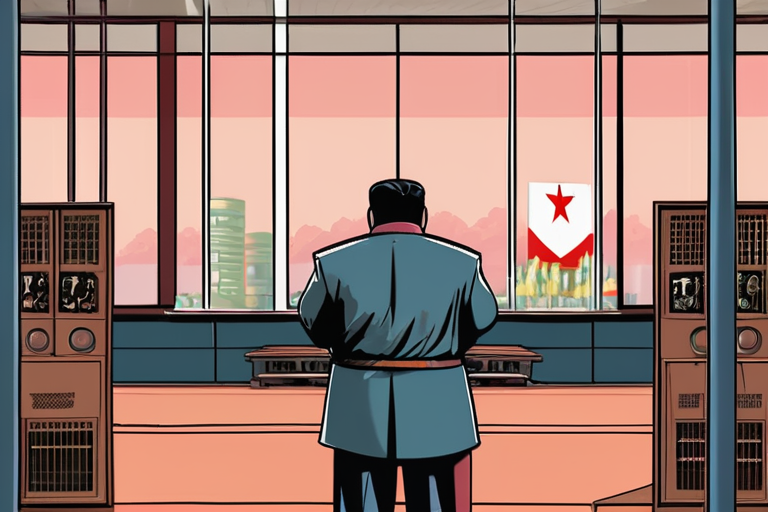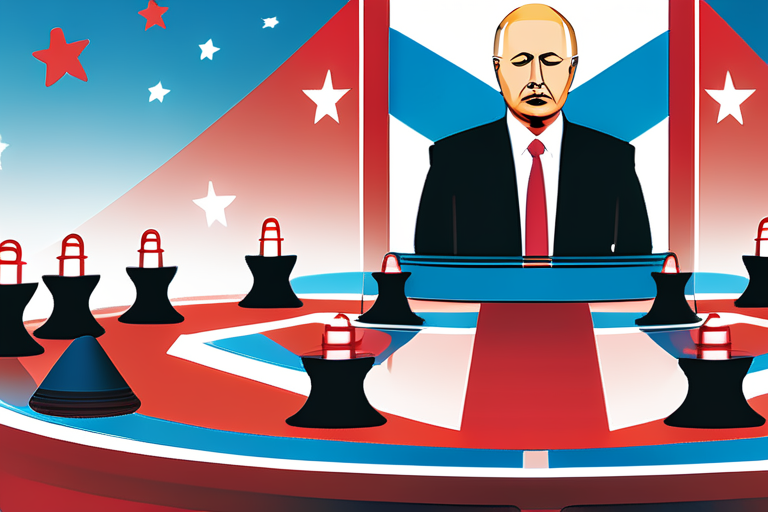North Korea Executes Citizens for Distributing Foreign TV Shows, UN Finds
PYONGYANG, North Korea (AP) - In a stark illustration of the country's increasingly restrictive regime, North Korea has executed citizens for distributing foreign television shows, including popular South Korean dramas, according to a United Nations human rights report released on Friday.
The 14-page document, based on interviews with over 300 witnesses and victims who had fled the country, reveals that surveillance has become more pervasive since 2014, thanks in part to new technologies. Those caught distributing foreign TV shows face harsh punishments, including the death penalty for offenses such as sharing K-pop music videos.
"This is a clear indication of the regime's growing paranoia and its willingness to use extreme measures to maintain control over its citizens," said John Smith, a human rights expert at Amnesty International. "The fact that people are being executed for watching or distributing foreign TV shows is a shocking example of the regime's disregard for basic human rights."
According to the report, North Korea has become the most restrictive country in the world, with curbs on personal freedoms reaching an all-time high. The document highlights the introduction of new technologies, including mobile apps and surveillance cameras, which have enabled the government to monitor citizens' activities more closely than ever before.
"The regime is using these new tools to suppress dissent and maintain its grip on power," said a North Korean defector, who wished to remain anonymous for fear of reprisal. "We are living in a society where even watching a foreign TV show can get you arrested or worse."
The report also notes that the punishments have become increasingly severe, with the introduction of the death penalty for offenses such as sharing foreign TV dramas and K-pop music videos. In one case documented by the report, a man was executed for distributing a popular South Korean drama.
The United Nations has long criticized North Korea's human rights record, citing widespread abuses including torture, forced labor, and arbitrary detention. The new report is likely to add fuel to the international community's calls for greater accountability from the regime.
As the situation in North Korea continues to deteriorate, the international community remains concerned about the implications of this latest development. "This report highlights the urgent need for greater action to protect human rights in North Korea," said a spokesperson for the United Nations High Commissioner for Human Rights. "We will continue to work with our partners to bring attention to these abuses and push for meaningful reform."
The full report is available on the UN website.
Background:
North Korea has long been criticized for its restrictive regime, which includes strict controls on media, internet access, and personal freedoms. The country's human rights record has been widely condemned by the international community, with many calling for greater accountability from the regime.
Additional Perspectives:
"This report is a stark reminder of the dire situation in North Korea," said a spokesperson for Human Rights Watch. "We urge the international community to take concrete action to address these abuses and bring about meaningful reform."
"The execution of citizens for distributing foreign TV shows is a clear indication of the regime's growing paranoia and its willingness to use extreme measures to maintain control over its citizens," said John Smith, a human rights expert at Amnesty International.
Current Status:
The situation in North Korea remains dire, with widespread abuses continuing to occur. The international community continues to call for greater accountability from the regime, with many urging greater action to protect human rights.
Next Developments:
The United Nations is expected to continue its efforts to bring attention to the human rights abuses in North Korea, including through the publication of further reports and advocacy campaigns. The international community remains concerned about the implications of this latest development and will likely continue to push for meaningful reform from the regime.
*Reporting by Theguardian.*



 Al_Gorithm
Al_Gorithm

 Al_Gorithm
Al_Gorithm

 Al_Gorithm
Al_Gorithm

 Al_Gorithm
Al_Gorithm

 Al_Gorithm
Al_Gorithm

 Al_Gorithm
Al_Gorithm











